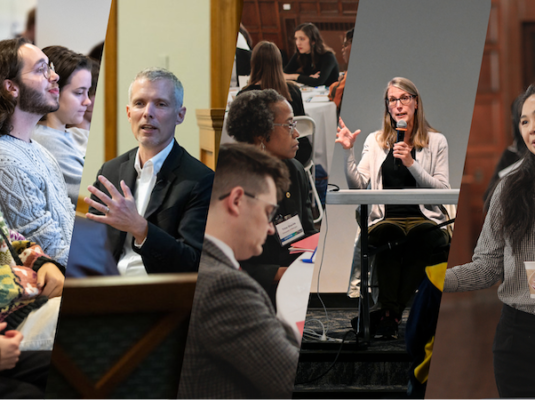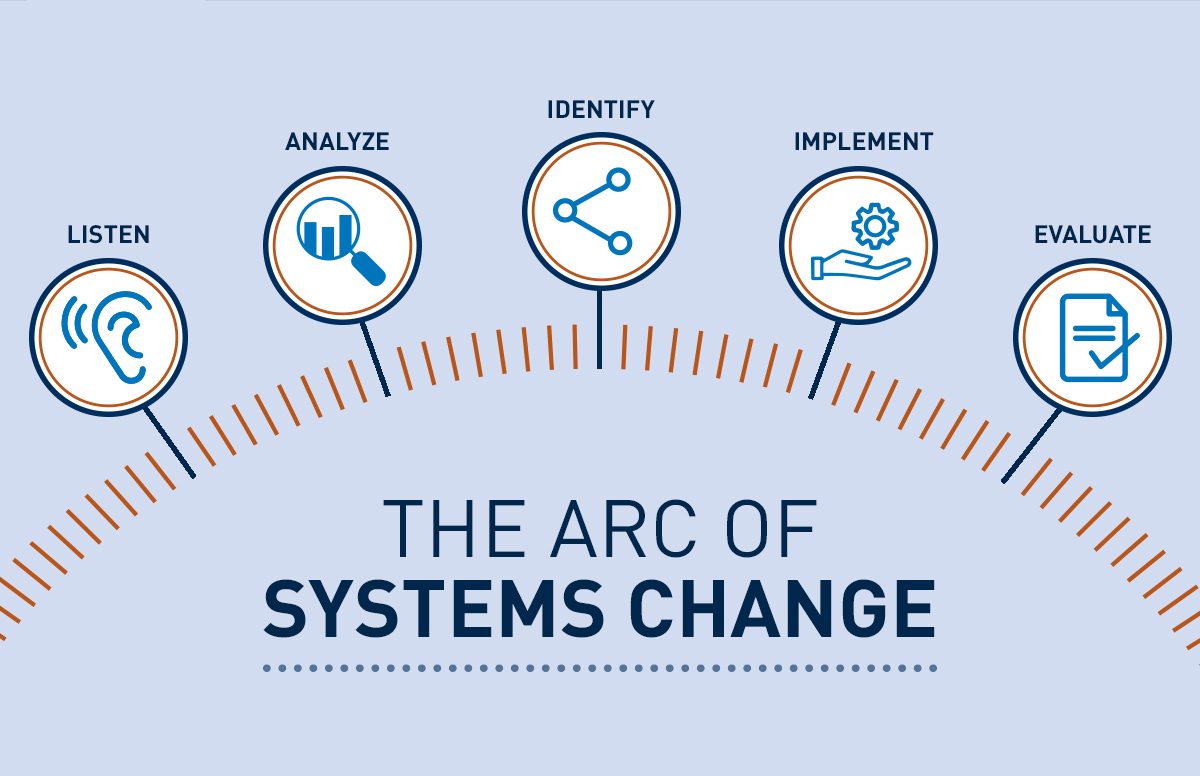
Our Work in Action
Our latest impact report demonstrates how Poverty Solutions has worked with partners to inform concrete policy change in the areas of cash assistance, youth homelessness, financial well-being, and more.
The University of Michigan has a proud tradition of groundbreaking research and teaching on poverty and inequality. U-M scholars have made pivotal contributions to knowledge and policymaking in the field of poverty dating back to the 1950s. Established in 2016, Poverty Solutions builds on this tradition.
Poverty Solutions does action-based research in partnership with communities and policymakers to inform policy change that makes systems work better for people with low incomes.
We view poverty as the result of interlinked systems — housing, education, criminal justice, labor markets — that fail to function as they should for people with low incomes. Such a systems approach puts the emphasis on structural, rather than individual, causes of poverty.
We recognize that many of these systems failures are the result of long-term racial and socioeconomic inequalities. Addressing poverty means confronting these disparities and seeking out just, equitable solutions.
By focusing on systems, we seek to partner in action that positively impacts the lives of many families. We look for ways to intervene through action ranging from small scale, community-focused projects to large-scale policy change.
We conceptualize our work as an arc of change. We start with listening to community input to set a collective research agenda and then analyze data and research to help identify policy gaps. Next, we identify possible solutions and propose evidence-based interventions. Finally, we support the implementation of new policies and practices and evaluate the outcome — listening again as new models take shape.


In confronting the challenges of poverty, we know scholars don’t have all the answers. Yet we have an important role to play. We can use data, evidence, and analysis to identify critical issues and evidence-based solutions to inform action.

Our latest impact report demonstrates how Poverty Solutions has worked with partners to inform concrete policy change in the areas of cash assistance, youth homelessness, financial well-being, and more.